"Closest black hole" system found to contain no black hole
Friday, 04 March 2022 05:36 In 2020 a team led by European Southern Observatory (ESO) astronomers reported the closest black hole to Earth, located just 1000 light-years away in the HR 6819 system. But the results of their study were contested by other researchers, including by an international team based at KU Leuven, Belgium. In a paper published this week these two teams have united to report that there is in fact no bl
In 2020 a team led by European Southern Observatory (ESO) astronomers reported the closest black hole to Earth, located just 1000 light-years away in the HR 6819 system. But the results of their study were contested by other researchers, including by an international team based at KU Leuven, Belgium. In a paper published this week these two teams have united to report that there is in fact no bl A solar illusion: Coronal loops may not be what they seem
Friday, 04 March 2022 05:36 Many coronal loops - ropey strands of plasma that scientists have long thought existed in the Sun's atmosphere - may actually be optical illusions, according to a new paper that challenges prevailing assumptions of what we know, and don't know, about the Sun.
The research, led by the National Center for Atmospheric Research (NCAR) and published in The Astrophysical Journal, relied on a cut
Many coronal loops - ropey strands of plasma that scientists have long thought existed in the Sun's atmosphere - may actually be optical illusions, according to a new paper that challenges prevailing assumptions of what we know, and don't know, about the Sun.
The research, led by the National Center for Atmospheric Research (NCAR) and published in The Astrophysical Journal, relied on a cut NASA starts building Europa Clipper to investigate icy, ocean moon of Jupiter
Friday, 04 March 2022 05:36 NASA has started to assemble the Europa Clipper spacecraft that will probe the icy, scarred surface of Jupiter's moon, Europa, starting in 2030.
The agency has been designing and building 10 instruments for the $4.5 billion mission since 2016, and technicians are assembling the parts at NASA's California-based Jet Propulsion Laboratory, NASA announced Thursday.
NASA has tapped Sp
NASA has started to assemble the Europa Clipper spacecraft that will probe the icy, scarred surface of Jupiter's moon, Europa, starting in 2030.
The agency has been designing and building 10 instruments for the $4.5 billion mission since 2016, and technicians are assembling the parts at NASA's California-based Jet Propulsion Laboratory, NASA announced Thursday.
NASA has tapped Sp Repellent wrap shown to shed all viruses and bacteria
Friday, 04 March 2022 05:36 New research by the inventors of a promising pathogen-repellent wrap has confirmed that it sheds not only bacteria, as previously proven, but also viruses, boosting its potential usefulness for interrupting the transmission of infections.
The new wrap, designed to protect against contamination on high-touch surfaces such as doorhandles and railings, is now moving toward scaled-up productio
New research by the inventors of a promising pathogen-repellent wrap has confirmed that it sheds not only bacteria, as previously proven, but also viruses, boosting its potential usefulness for interrupting the transmission of infections.
The new wrap, designed to protect against contamination on high-touch surfaces such as doorhandles and railings, is now moving toward scaled-up productio Kendall details 'Seven Operational Imperatives' and how they forge the Future Force
Friday, 04 March 2022 05:36 Secretary of the Air Force Frank Kendall outlined his increasingly urgent roadmap March 3 for successfully bringing about the new technologies, thinking, and cultures the Air and Space Forces must have to deter and, if necessary, defeat modern day adversaries.
The particulars of Kendall's 30-minute keynote to Air Force Association's Warfare Symposium weren't necessarily new since they echo
Secretary of the Air Force Frank Kendall outlined his increasingly urgent roadmap March 3 for successfully bringing about the new technologies, thinking, and cultures the Air and Space Forces must have to deter and, if necessary, defeat modern day adversaries.
The particulars of Kendall's 30-minute keynote to Air Force Association's Warfare Symposium weren't necessarily new since they echo China launches new land-observation satellite
Friday, 04 March 2022 05:36 China on Sunday morning launched a Long March-4C rocket to place a new land-observation satellite in space.
The rocket blasted off at 7:44 a.m. (Beijing Time) from the Jiuquan Satellite Launch Center in northwest China and soon sent the L-SAR 01B satellite into its preset orbit.
The satellite will be used to monitor Earth's geological environment, landslides and earthquakes.
Th
China on Sunday morning launched a Long March-4C rocket to place a new land-observation satellite in space.
The rocket blasted off at 7:44 a.m. (Beijing Time) from the Jiuquan Satellite Launch Center in northwest China and soon sent the L-SAR 01B satellite into its preset orbit.
The satellite will be used to monitor Earth's geological environment, landslides and earthquakes.
Th With Soyuz off the table, OneWeb back in the mix
Thursday, 03 March 2022 22:42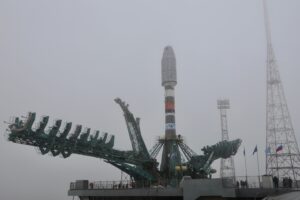
OneWeb is considering American, European, Indian and Japanese rockets for launching its remaining 220 satellites after the company announced March 3 that it would stop using Russia’s Soyuz rocket.
The post With Soyuz off the table, OneWeb back in the mix appeared first on SpaceNews.
Air Force Secretary: We’re worried about Russia but China is a bigger strategic threat
Thursday, 03 March 2022 22:01
Air Force Secretary Frank Kendall said, "when you look at it objectively, China is a much greater strategic threat than Russia is"
The post Air Force Secretary: We’re worried about Russia but China is a bigger strategic threat appeared first on SpaceNews.
U.S. Air Force sees no impact from Russia’s decision to cut off supply of rocket engines
Thursday, 03 March 2022 20:49
Air Force Secretary Frank Kendall said U.S. national security launches will not be affected by Russia’s decision to stop supplying rocket engines to the United States.
The post U.S. Air Force sees no impact from Russia’s decision to cut off supply of rocket engines appeared first on SpaceNews.
NASA begins assembly of Europa Clipper spacecraft
Thursday, 03 March 2022 20:14
Science instruments and other hardware for the spacecraft will come together in the mission's final phase before a launch to Jupiter's icy moon Europa in 2024.
When it's fully assembled, NASA's Europa Clipper will be as large as an SUV with solar arrays long enough to span a basketball court—all the better to help power the spacecraft during its journey to Jupiter's icy moon Europa. And just about every detail of the spacecraft will have been hand-crafted.
The assembly effort is already underway in clean rooms at the agency's Jet Propulsion Laboratory in Southern California. Now, engineering components and science instruments are beginning to stream in from across the country and Europe.
Kendall: Space ‘order of battle’ a top priority in U.S. defense budget and strategy
Thursday, 03 March 2022 20:00
Secretary of the Air Force Frank Kendall said the ‘space order of battle’ is driving budget discussions in preparation for the 2024 request.
The post Kendall: Space ‘order of battle’ a top priority in U.S.
Ultraviolet instrument to play integral part of NASA's Europa Clipper mission
Thursday, 03 March 2022 16:27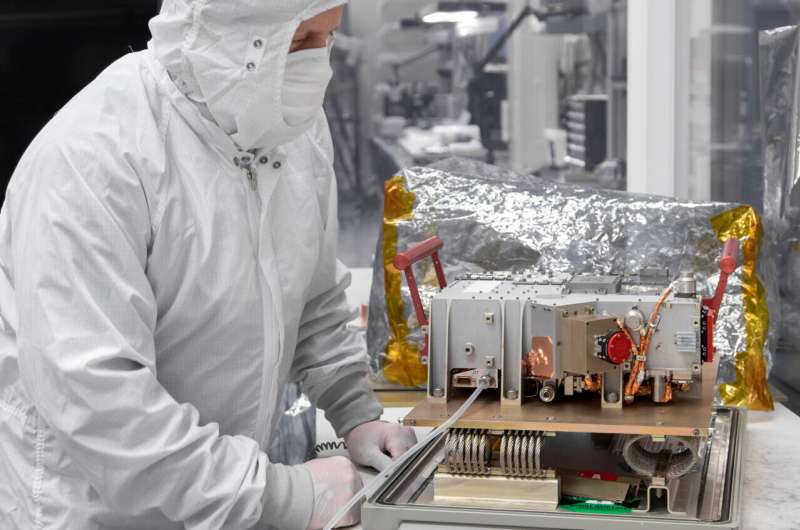
An ultraviolet spectrograph (UVS) designed and built by Southwest Research Institute (SwRI) is the first scientific instrument to be delivered for integration onto NASA's Europa Clipper spacecraft. Scheduled to launch in 2024 and arrive in the Jovian system by 2030, Europa Clipper will conduct detailed reconnaissance of Jupiter's moon Europa and investigate whether it could harbor conditions suitable for life.
Aerial antenna for Venus mission test
Thursday, 03 March 2022 13:15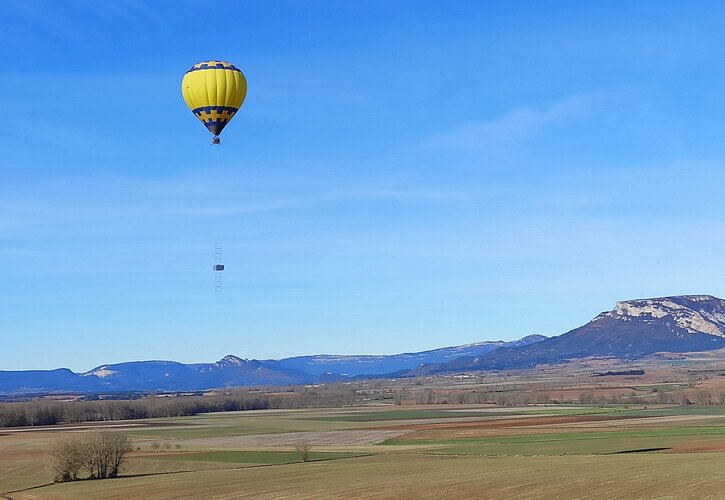 Image:
Aerial antenna for Venus mission test
Image:
Aerial antenna for Venus mission test Roscosmos head again questions future of ISS while NASA emphasizes cooperation
Thursday, 03 March 2022 11:45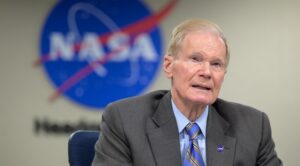
The head of Roscosmos has renewed threats to terminate Russian participation in the International Space Station even as NASA says operations on the station remain normal.
The post Roscosmos head again questions future of ISS while NASA emphasizes cooperation appeared first on SpaceNews.
“Nothing to share”: South Korean firm turns down Ukrainian request for satellite imagery
Thursday, 03 March 2022 10:28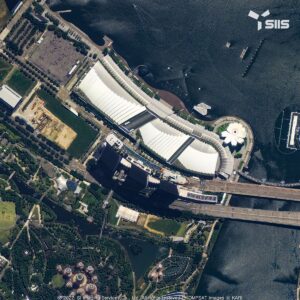
South Korea’s Earth observation company SI Imaging Services (SIIS) turned down a request to share satellite imagery of Ukraine and neighboring countries to assist Ukrainian efforts to repel Russia’s invasion.

